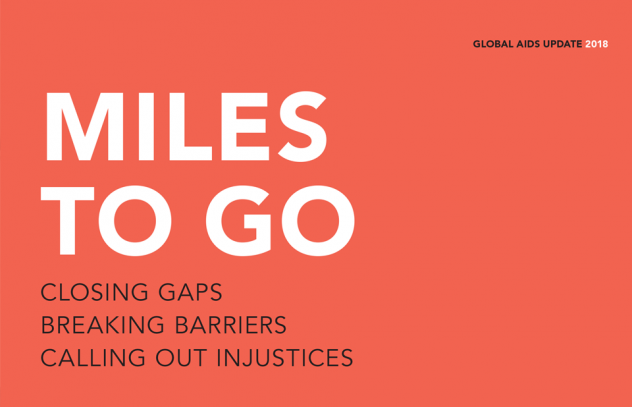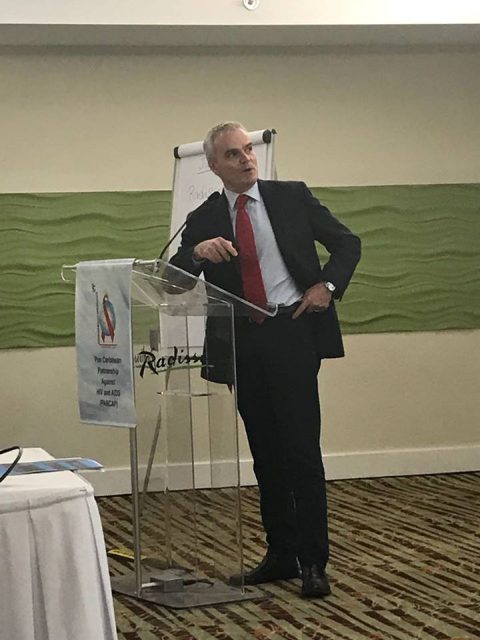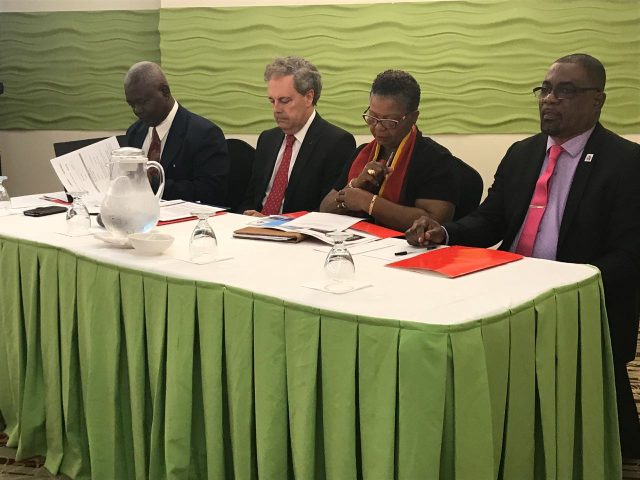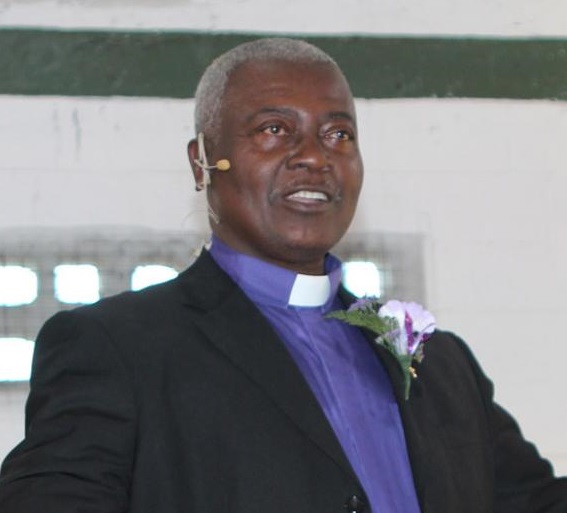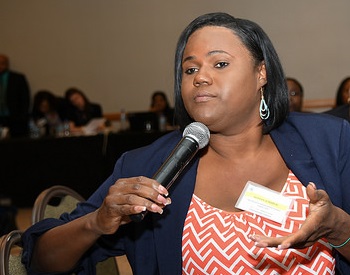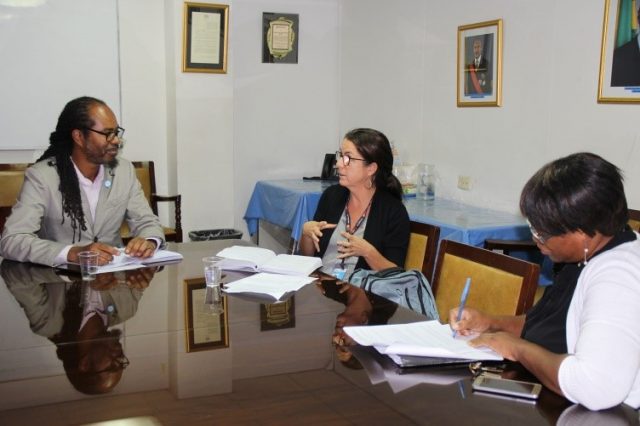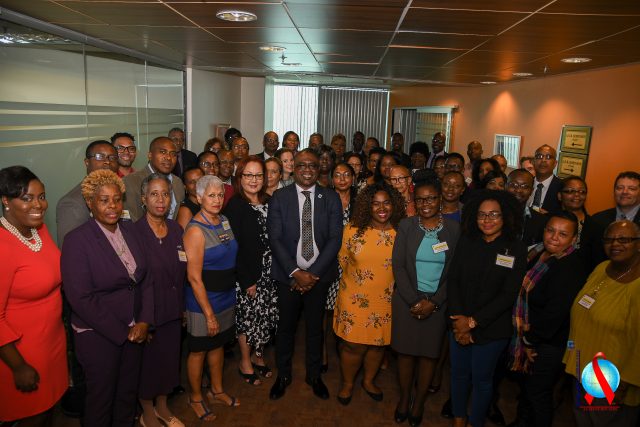GENEVA, 18 July 2018—UNAIDS is issuing countries with a stark wake-up call. In a new report, launched today in Paris, France, at an event co-hosted with Coalition PLUS, UNAIDS warns that the global response to HIV is at a precarious point. At the halfway point to the 2020 targets, the report, Miles to go—closing gaps, breaking barriers, righting injustices, warns that the pace of progress is not matching global ambition. It calls for immediate action to put the world on course to reach critical 2020 targets.
“We are sounding the alarm,” said Michel Sidibé, Executive Director of UNAIDS. “Entire regions are falling behind, the huge gains we made for children are not being sustained, women are still most affected, resources are still not matching political commitments and key populations continue to be ignored. All these elements are halting progress and urgently need to be addressed head-on.”
HIV prevention crisis
Global new HIV infections have declined by just 18% in the past seven years, from 2.2 million in 2010 to 1.8 million in 2017. Although this is nearly half the number of new infections compared to the peak in 1996 (3.4 million), the decline is not quick enough to reach the target of fewer than 500 000 by 2020.
The reduction in new HIV infections has been strongest in the region most affected by HIV, eastern and southern Africa, where new HIV infections have been reduced by 30% since 2010. However, new HIV infections are rising in around 50 countries. In eastern Europe and central Asia the annual number of new HIV infections has doubled, and new HIV infections have increased by more than a quarter in the Middle East and North Africa over the past 20 years.
Treatment scale-up should not be taken for granted
Due to the impact of antiretroviral therapy roll-out, the number of AIDS-related deaths is the lowest this century (940 000), having dropped below 1 million for the first time in 2016. Yet, the current pace of decline is not fast enough to reach the 2020 target of fewer than 500 000 AIDS-related deaths.
In just one year, an additional 2.3 million people were newly accessing treatment. This is the largest annual increase to date, bringing the total number of people on treatment to 21.7 million. Almost 60% of the 36.9 million people living with HIV were on treatment in 2017, an important achievement, but to reach the 30 million target there needs to be an annual increase of 2.8 million people, and there are indications that the rate of scale-up is slowing down.
West and central Africa lagging behind
Just 26% of children and 41% of adults living with HIV had access to treatment in western and central Africa in 2017, compared to 59% of children and 66% of adults in eastern and southern Africa. Since 2010, AIDS-related deaths have fallen by 24% in western and central Africa, compared to a 42% decline in eastern and southern Africa.
Nigeria has more than half (51%) of the HIV burden in the region and there has been little progress in reducing new HIV infections in recent years. New HIV infections declined by only 5% (9000) in seven years (from 179 000 to 170 000) and only one in three people living with HIV is on treatment (33%), although HIV treatment coverage has increased from just 24% two years ago.
Progress for children has slowed
The report shows that the gains made for children are not being sustained. New HIV infections among children have declined by only 8% in the past two years, only half (52%) of all children living with HIV are getting treatment and 110 000 children died of AIDS-related illnesses in 2017. Although 80% of pregnant women living with HIV had access to antiretroviral medicines to prevent transmission of HIV to their child in 2017, an unacceptable 180 000 children acquired HIV during birth or breastfeeding—far away from the target of fewer than 40 000 by the end of 2018.
“One child becoming infected with HIV or one child dying of AIDS is one too many,” said Mr Sidibé. “Ending the AIDS epidemic is not a foregone conclusion and the world needs to heed this wake-up call and kick-start an acceleration plan to reach the targets.”
Key populations account for almost half of all new HIV infections worldwide
The report also shows that key populations are not being considered enough in HIV programming. Key populations and their sexual partners account for 47% of new HIV infections worldwide and 97% of new HIV infections in eastern Europe and central Asia, where one third of new HIV infections are among people who inject drugs.
“The right to health for all is non-negotiable,” said Mr Sidibé. “Sex workers, gay men and other men who have sex with men, prisoners, migrants, refugees and transgender people are more affected by HIV but are still being left out from HIV programmes. More investments are needed in reaching these key populations.”
Half of all sex workers in Eswatini, Lesotho, Malawi, South Africa and Zimbabwe are living with HIV. The risk of acquiring HIV is 13 times higher for female sex workers, 27 times higher among men who have sex with men, 23 times higher among people who inject drugs and 12 times higher for transgender women.
“Communities are echoing UNAIDS’ call,” said Vincent Pelletier, positive leader and Executive Director of Coalition PLUS. “We need universal access to adapted prevention services, and protection from discrimination. We call upon world leaders to match commitments with funding, in both donor and implementing countries.”
Stigma and discrimination persist
Discrimination by health-care workers, law enforcement, teachers, employers, parents, religious leaders and community members is preventing young people, people living with HIV and key populations from accessing HIV prevention, treatment and other sexual and reproductive health services.
Across 19 countries, one in five people living with HIV responding to surveys reported being denied health care and one in five people living with HIV avoided visiting a health facility for fear of stigma or discrimination related to their HIV status. In five of 13 countries with available data, more than 40% of people said they think that children living with HIV should not be able to attend school with children who are HIV-negative.
New agenda needed to stop violence against women
In 2017, around 58% of all new HIV infections among adults more than 15 years old were among women and 6600 young women between the ages of 15 and 24 years became infected with HIV every week. Increased vulnerability to HIV has been linked to violence. More than one in three women worldwide have experienced physical or sexual violence, often at the hands of their intimate partners.
“Inequality, a lack of empowerment and violence against women are human rights violations and are continuing to fuel new HIV infections,” said Mr Sidibé. “We must not let up in our efforts to address and root out harassment, abuse and violence, whether at home, in the community or in the workplace.”
90–90–90 can and must be achieved
There has been progress towards the 90–90–90 targets. Three quarters (75%) of all people living with HIV now know their HIV status; of the people who know their status, 79% were accessing treatment in 2017, and of the people accessing treatment, 81% had supressed viral loads.
Six countries, Botswana, Cambodia, Denmark, Eswatini, Namibia and the Netherlands, have already reached the 90–90–90 targets and seven more countries are on track. The largest gap is in the first 90; in western and central Africa, for example, only 48% of people living with HIV know their status.
A big year for the response to tuberculosis
There have been gains in treating and diagnosing HIV among people with tuberculosis (TB)—around nine out of 10 people with TB who are diagnosed with HIV are on treatment. However, TB is still the biggest killer of people living with HIV and three out of five people starting HIV treatment are not screened, tested or treated for TB. The United Nations High-Level Meeting on Tuberculosis in September 2018 is an opportunity to bolster momentum around reaching the TB/HIV targets.
The cost of inaction
Around US$ 20.6 billion was available for the AIDS response in 2017—a rise of 8% since 2016 and 80% of the 2020 target set by the United Nations General Assembly. However, there were no significant new commitments and as a result the one-year rise in resources is unlikely to continue. Achieving the 2020 targets will only be possible if investments from both donor and domestic sources increase.
Ways forward
From townships in southern Africa to remote villages in the Amazon to mega-cities in Asia, the dozens of innovations contained within the pages of the report show that collaboration between health systems and individual communities can successfully reduce stigma and discrimination and deliver services to the vast majority of the people who need them the most.
These innovative approaches continue to drive the solutions needed to achieve the 2020 targets. When combination HIV prevention—including condoms and voluntary medical male circumcision—is pursued at scale, population-level declines in new HIV infections are achieved. Oral pre-exposure prophylaxis (PrEP) is having an impact, particularly among key populations. Offering HIV testing and counselling to family members and the sexual partners of people diagnosed with HIV has significantly improved testing access.
Eastern and southern Africa has seen significant domestic and international investments coupled with strong political commitment and community engagement and is showing significant progress in achieving the 2020 targets.
“For every challenge there is a solution,” said Mr Sidibé. “It is the responsibility of political leaders, national governments and the international community to make sufficient financial investments and establish the legal and policy environments needed to bring the work of innovators to the global scale. Doing so will create the momentum needed to reach the targets by 2020.”
In 2017, an estimated:
36.9 million [31.1 million–43.9 million] people globally were living with HIV
21.7 million [19.1 million–22.6 million] people were accessing treatment
1.8 million [1.4 million–2.4 million] people became newly infected with HIV
940 000 [670 000–1.3 million] people died from AIDS-related illnesses
UNAIDS
The Joint United Nations Programme on HIV/AIDS (UNAIDS) leads and inspires the world to achieve its shared vision of zero new HIV infections, zero discrimination and zero AIDS-related deaths. UNAIDS unites the efforts of 11 UN organizations—UNHCR, UNICEF, WFP, UNDP, UNFPA, UNODC, UN Women, ILO, UNESCO, WHO and the World Bank—and works closely with global and national partners towards ending the AIDS epidemic by 2030 as part of the Sustainable Development Goals. Learn more at unaids.org and connect with us on Facebook, Twitter, Instagram and YouTube.

